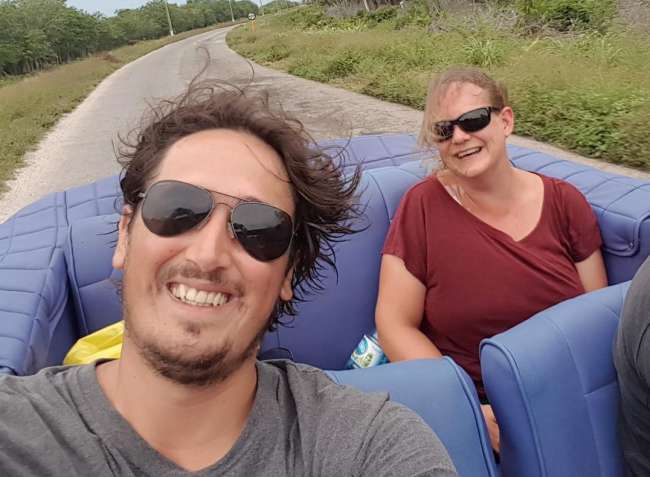Paraguay: Concepcion
Ebipụtara: 10.01.2019
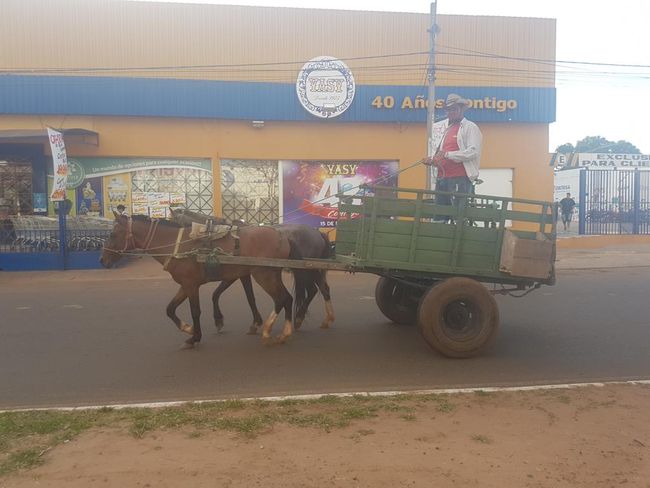
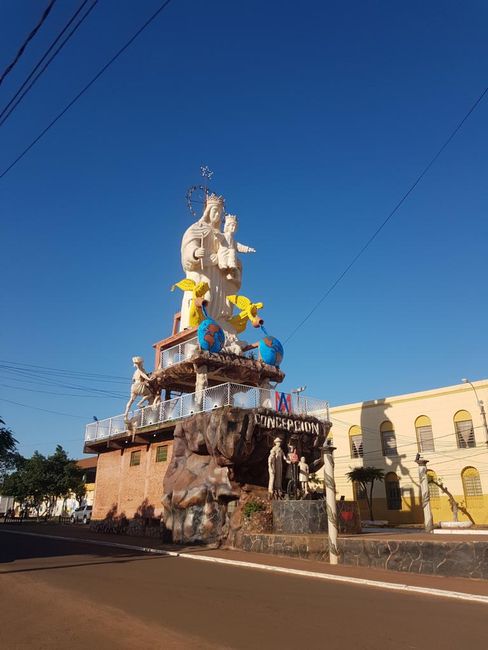
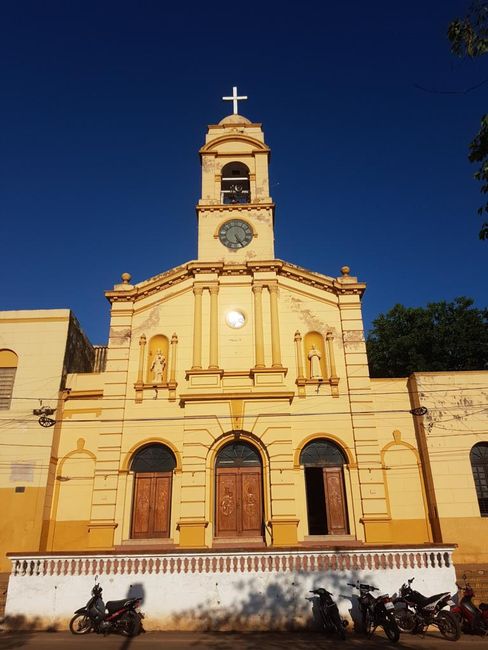
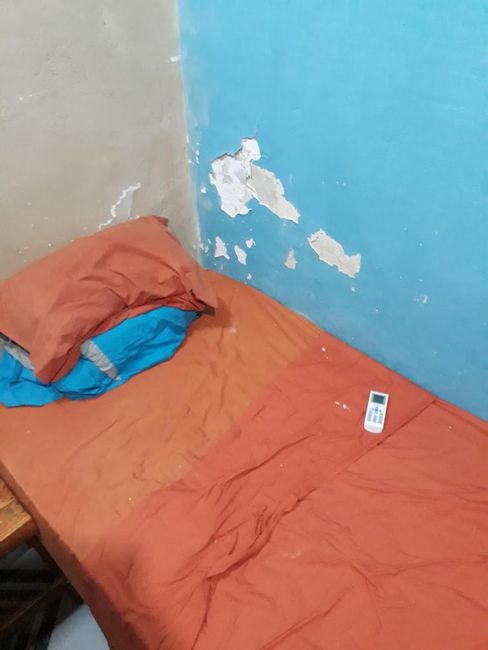
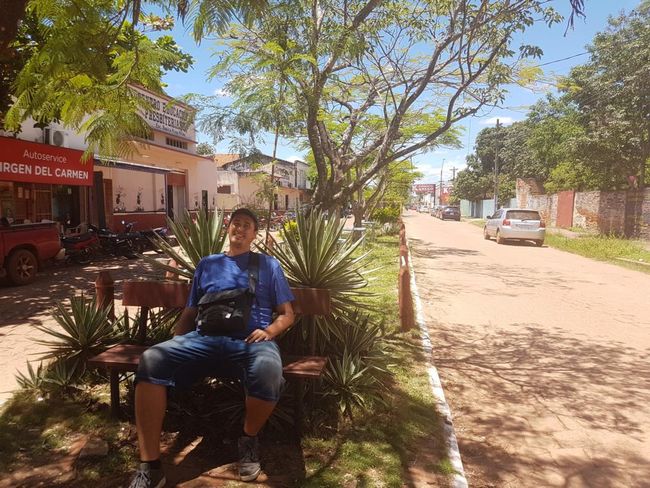
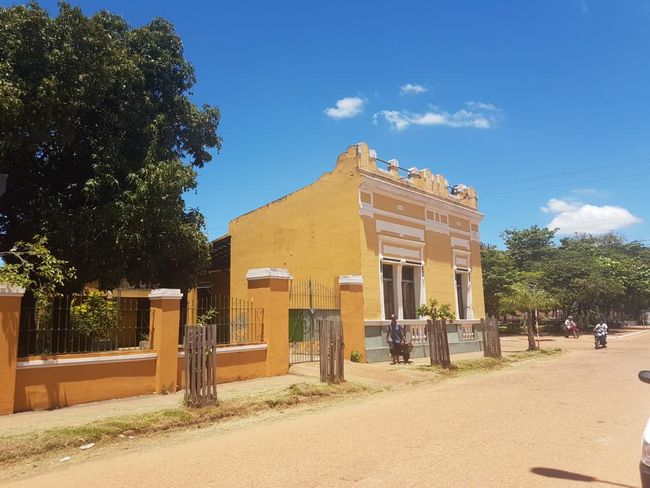
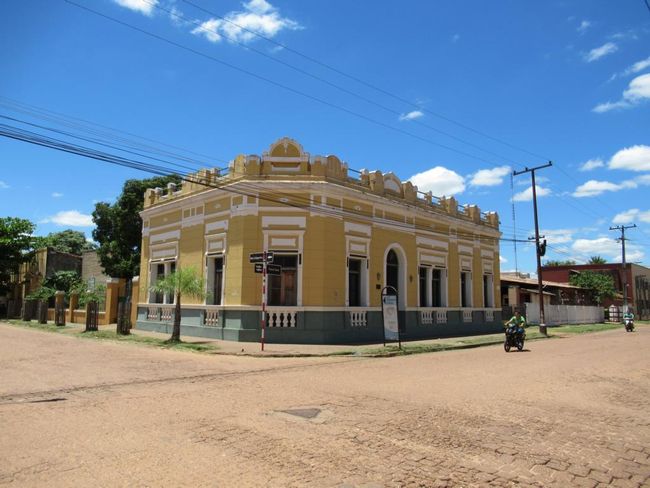
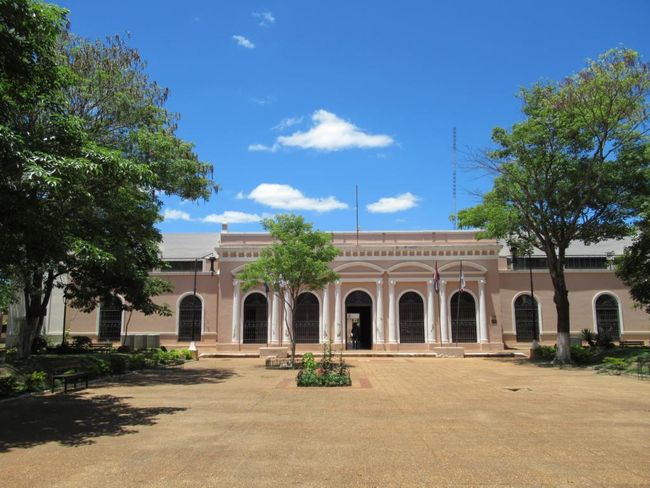
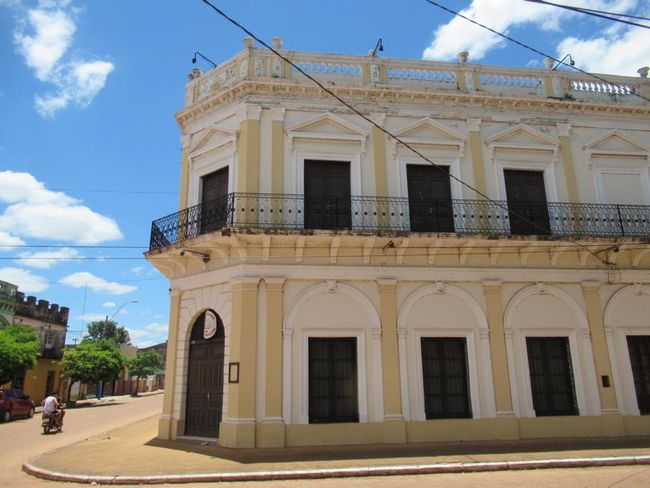
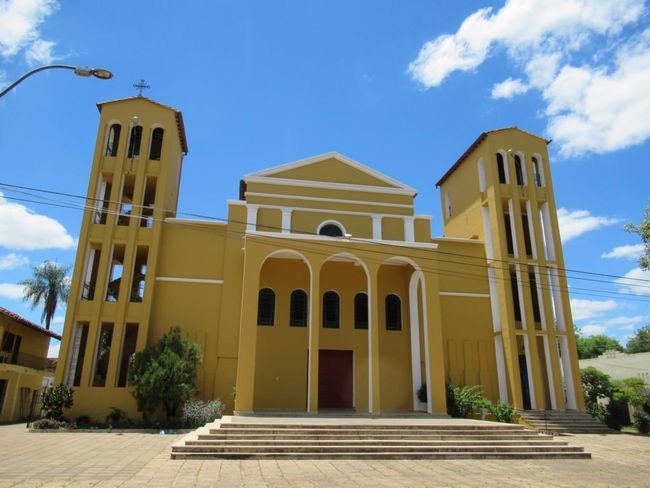
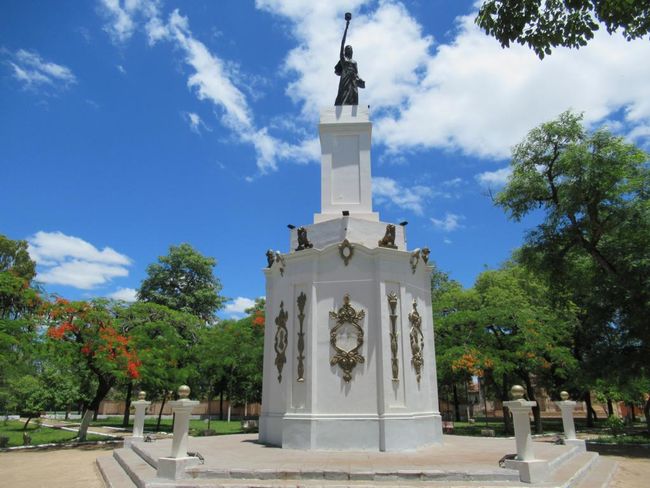
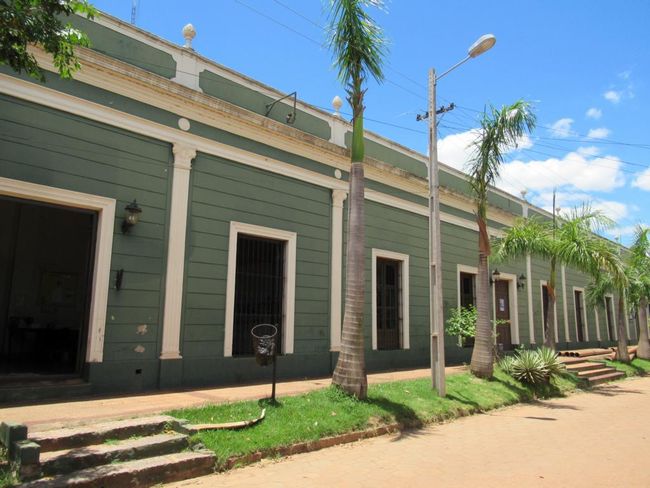
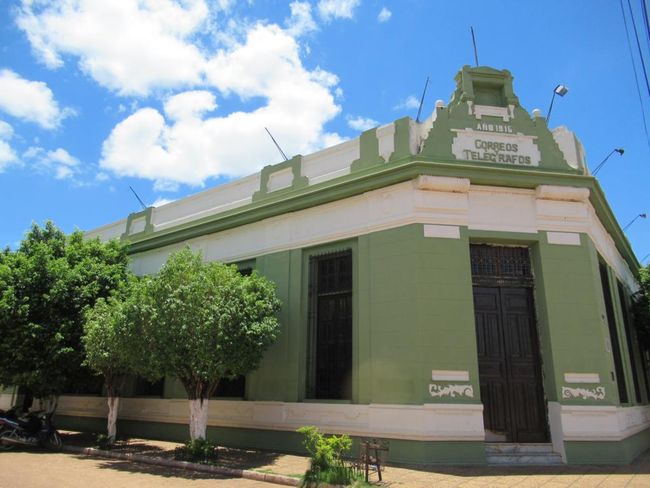
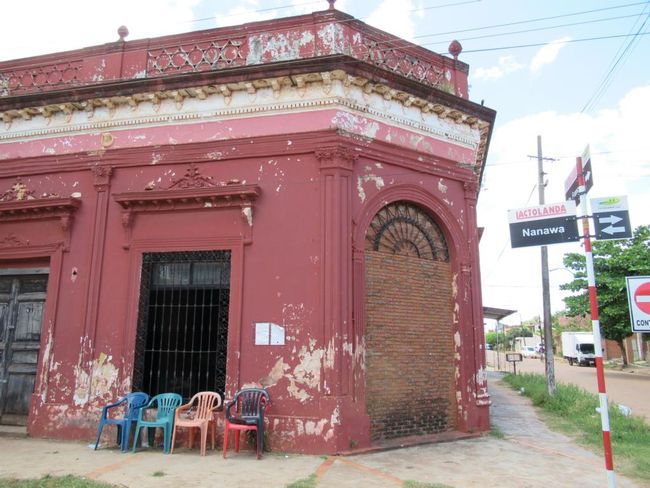
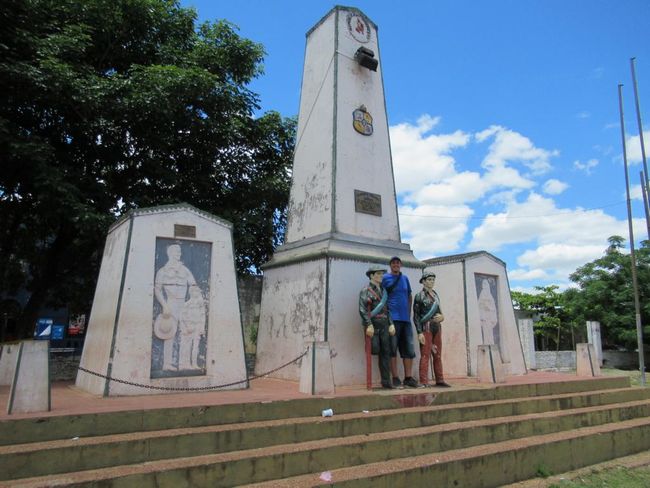
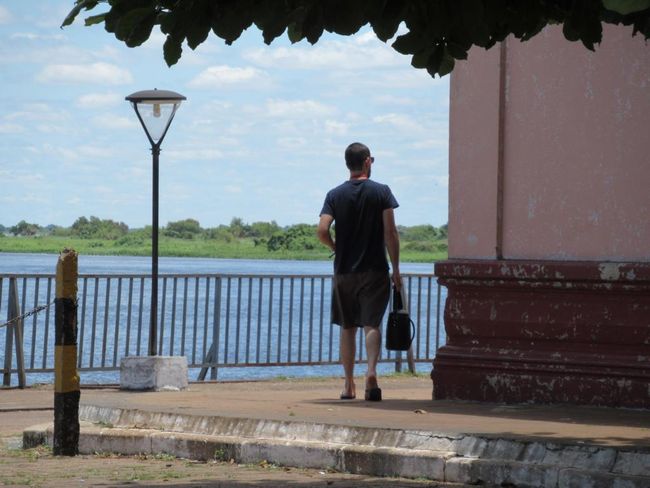
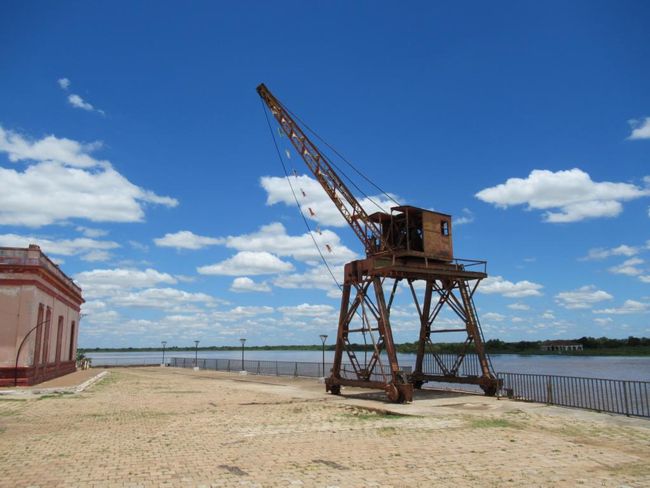
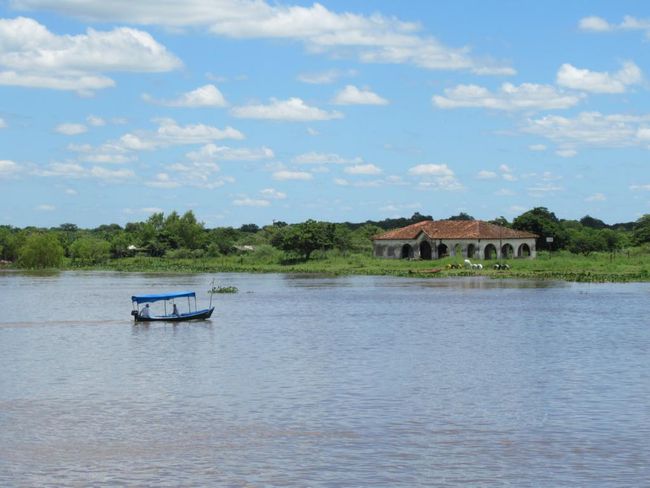
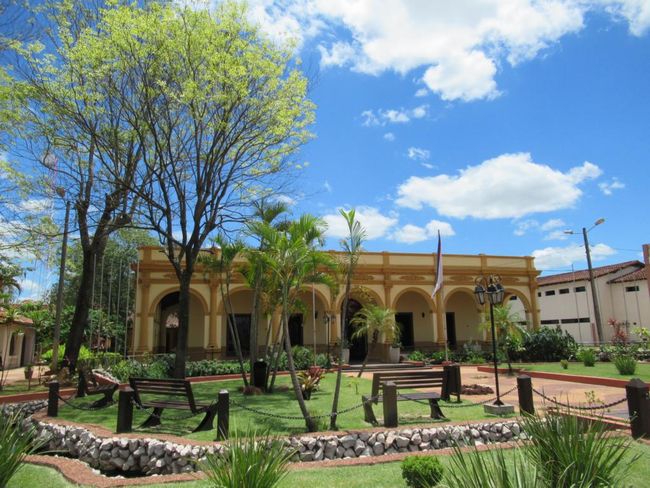
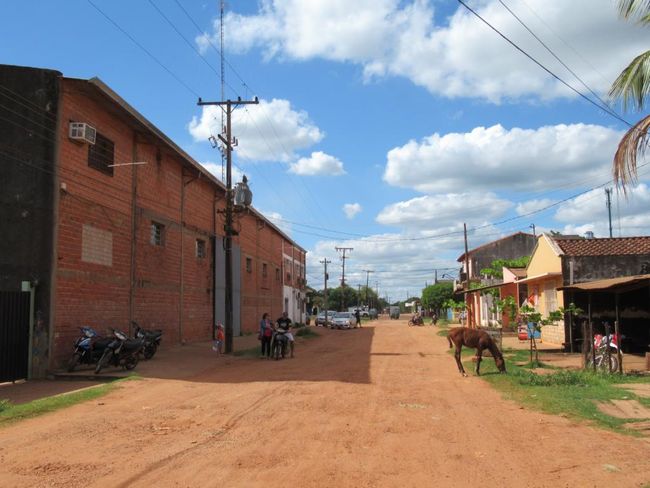
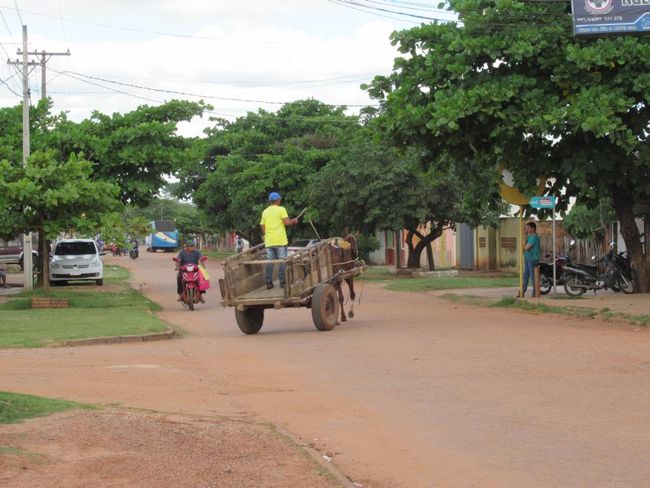
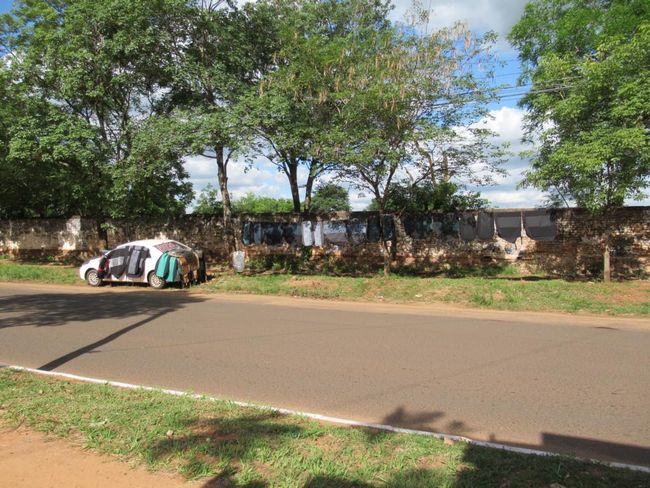
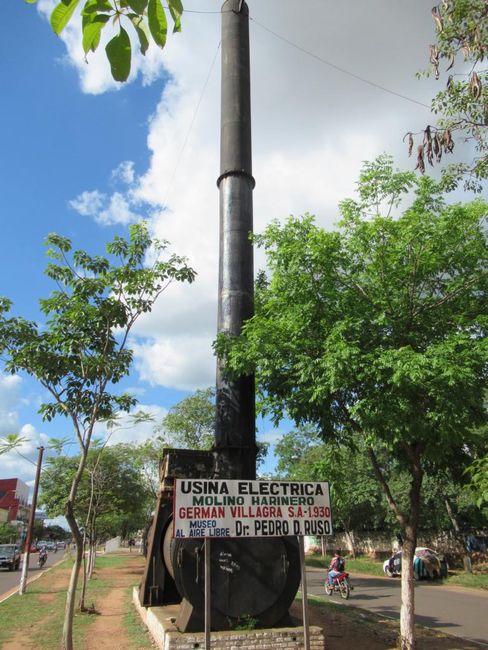
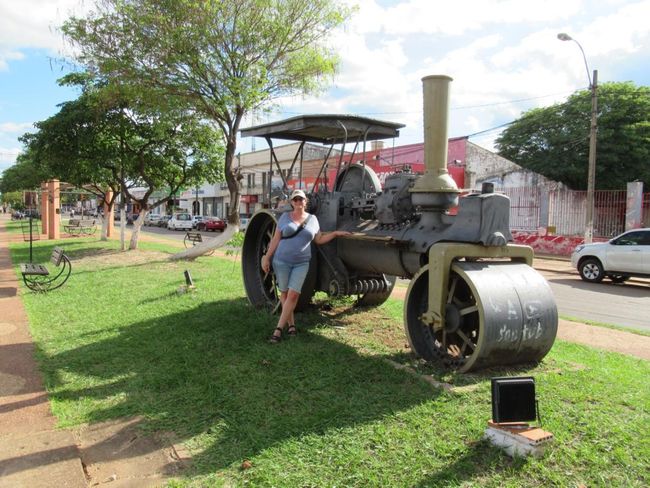
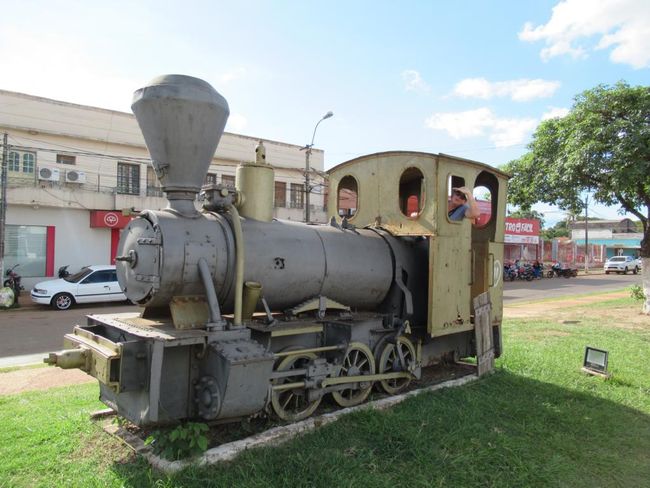
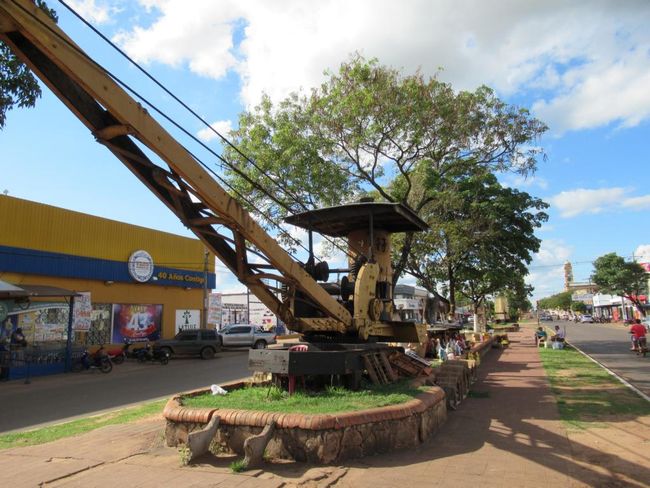
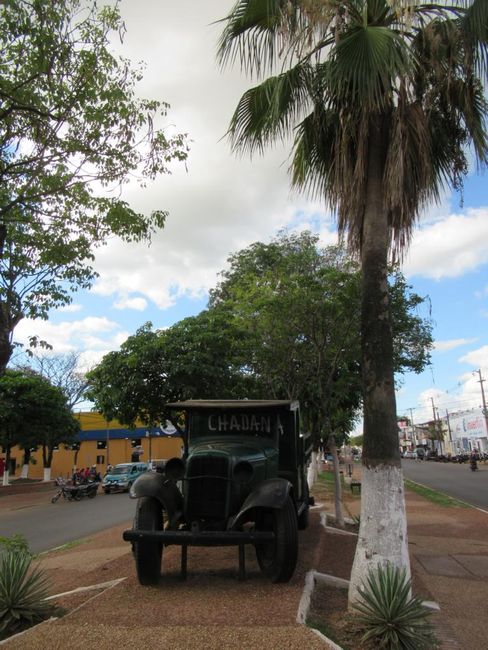
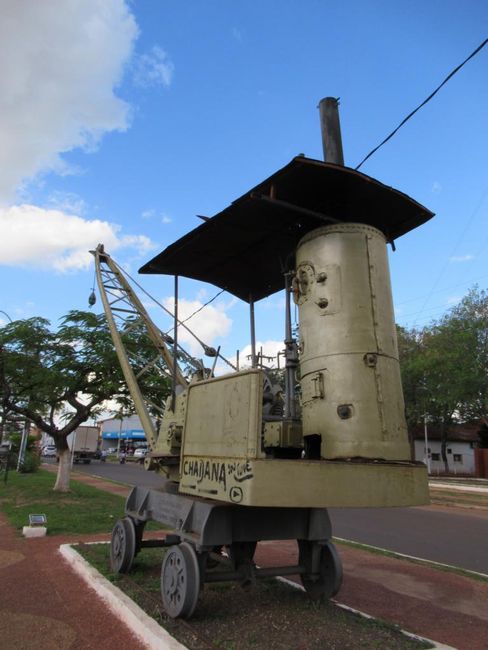
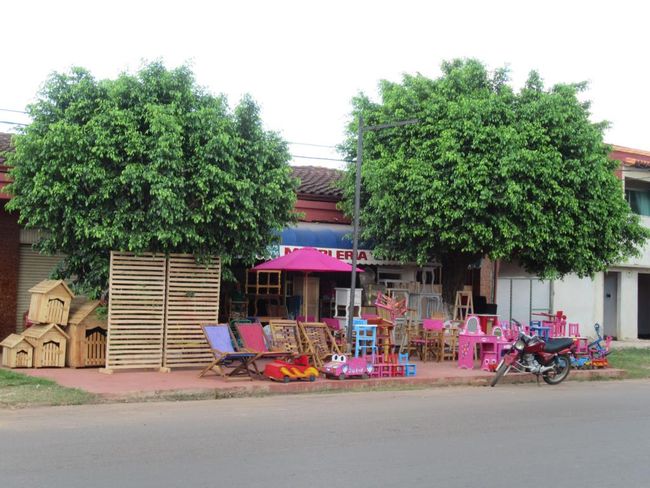
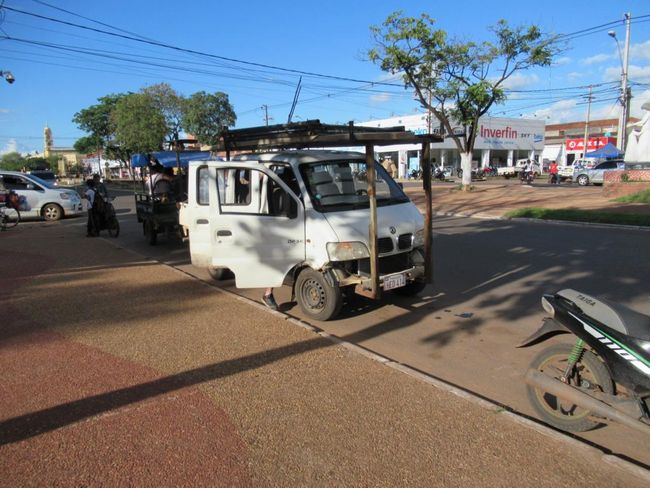
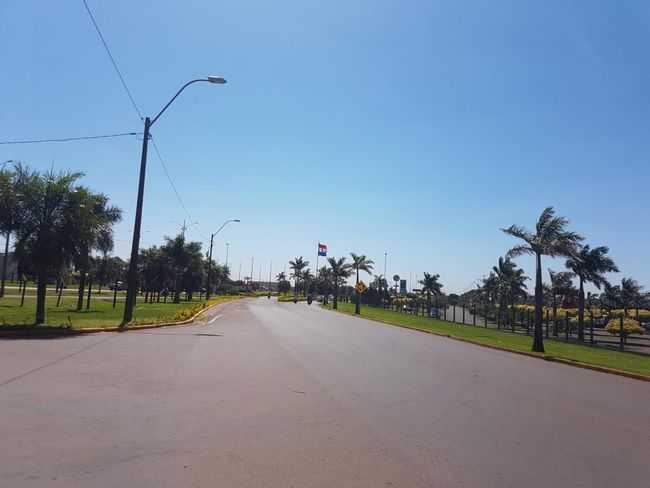
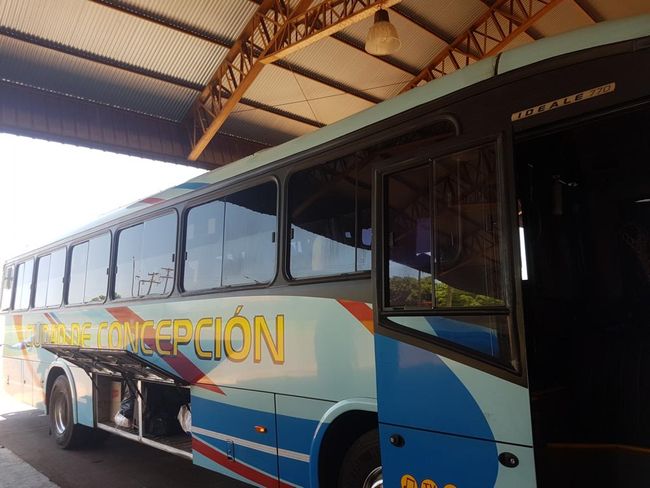
Debanye aha na akwụkwọ akụkọ
The next border crossing from Bonito
to Paraguay would actually be Bela Vista, but unfortunately we were told that there are no authorities there where foreigners can
process the border formalities and collect the necessary stamps.
So we had no choice but to continue on to Ponta
Pora. Idiotically, the bus from
Bonito to Ponta Pora goes first via Bela Vista, so we made a
huge detour. When we finally arrived in Ponta Pora, it was
already late and the customs authorities were already closed. Great. So we
had to stay there overnight. The two places Ponta Pora
(Brazil) and Pedro Juan Caballero (Paraguay) actually form
a big city. The border runs along a main road. Within the town, you can freely move between the
two countries. In fact, on one side of the main road, people speak Portuguese and pay in Reais, on
the other side of the road, people speak (finally again) Spanish
and pay in the Paraguayan currency Guarani.
The next
morning, we were finally able to complete the entry and exit formalities. There is no official border crossing. The
exit from Brazil must be done at the airport, the entry
into Paraguay in an inconspicuous little office in the middle of the city.
Only the passport is stamped, no one is interested
in what you have in your luggage.
Once that was done, we went to the bus terminal, where we boarded the next bus to Concepcion.
Honestly, we had no
concrete idea of Paraguay. If someone had asked us
about it, we probably would have answered with some stereotypes:
somehow a bit like the Wild West, cowboys, horses and
wagons, big ranches, lots of cows, dusty, hot, quite
run-down.
In fact, if at all, only Concepcion fulfilled these "prejudices", so it comes close to what we had imagined about Paraguay. Concepcion is actually a
sleepy, dusty, hot little town where absolutely nothing happens.
"Action" in this area means that a horse with a
wagon full of watermelons trot by or a ship docks in the port. Indeed, this was also the only place in all
of Paraguay where we actually encountered horses with wagons on the street.
The first nasty surprise that awaited us in the country were the inflated prices for "hotel rooms". If they could be called that at all. For really outrageous prices compared to other Latin American countries, we got a really miserable standard here. For example, our accommodation in Concepcion cost about 35 CHF per ight, and for that we received a tiny little rat hole without windows with peeling paint on the walls, 2 more than poor old beds, a small shared bathroom, and a terrible coffee and 2 dry rolls for breakfast. In comparison, for this money in Bolivia you can get a really very nice room with private bathroom, heating or aircon, good breakfast and all the amenities. Well, Paraguay in general and Concepcion in particular is really not on the Gringo route, so there wasn't really much choice there. But we would also experience everywhere else in the country that you really have to dig deep into your pocket if you want even a halfway decent room. Otherwise, traveling in the country is relatively cheap, it's really mostly the accommodations that tear a hole in your wallet.
As I said, there's not much to see in Concepcion. The highlight is probably the monument of Maria Auxiliadora, an enormous statue that towers in the middle of the main street.
Then there is the Museo de Arqueologia Industrial, an "open-air museum" with a "collection" of old industrial and agricultural machinery. Actually, the "open-air museum" is located along the median strip of the main road and the "collection" consists of a handful of ancient equipment and vehicles.
Otherwise, we strolled through the town a bit,
saw the partly dilapidated colonial buildings, hung out a bit at the "port" and
took care of a few necessary things, like getting a local SIM card. It was also very amusing to watch the
"sales stand" of the clever car carpet and seat cover
seller on the side of the road. Actually, it seemed that he wasn't
doing a bad business.
Otherwise, Concepcion was bustling with scooters, it almost felt like being in
Vietnam.
As soon as you enter Paraguay, one thing immediately catches your eye: Everyone. Really. Absolutely. Everyone.....carries a thermos flask with them. We had read before that Paraguayos love terere, a cold herbal tea. "Love" is really an understatement. From the salesperson in the store, to the police officer on the street, to the teenagers on their way to school, to the housewife playing with her children in the park, yes even the guy on the motorcycle and the bus driver, everyone has the typical 3 utensils with them that immediately identify them as Paraguayans: a huge thermos flask, a cup (usually in the integrated cup holder on the thermos flask) and a bombilla (a kind of straw with a built-in tea strainer). These utensils can also be bought on every street corner. We will come back to this really interesting cultural peculiarity later.
Debanye aha na akwụkwọ akụkọ
Zaa (1)
Manuela
Der steht bei mir und wird sogar benutzt 😉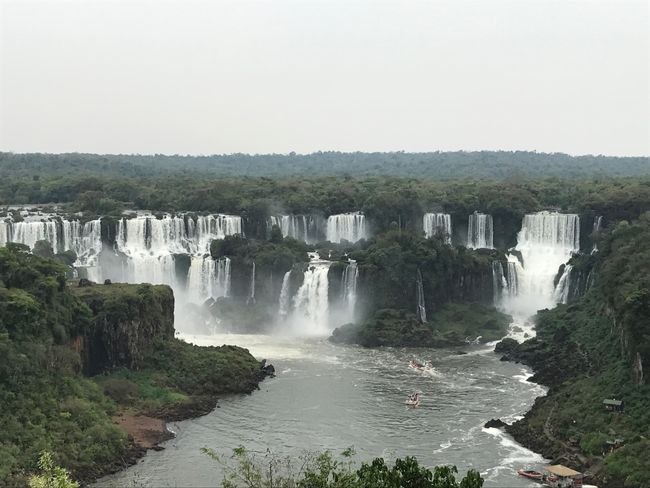
Akụkọ njem Paraguay

